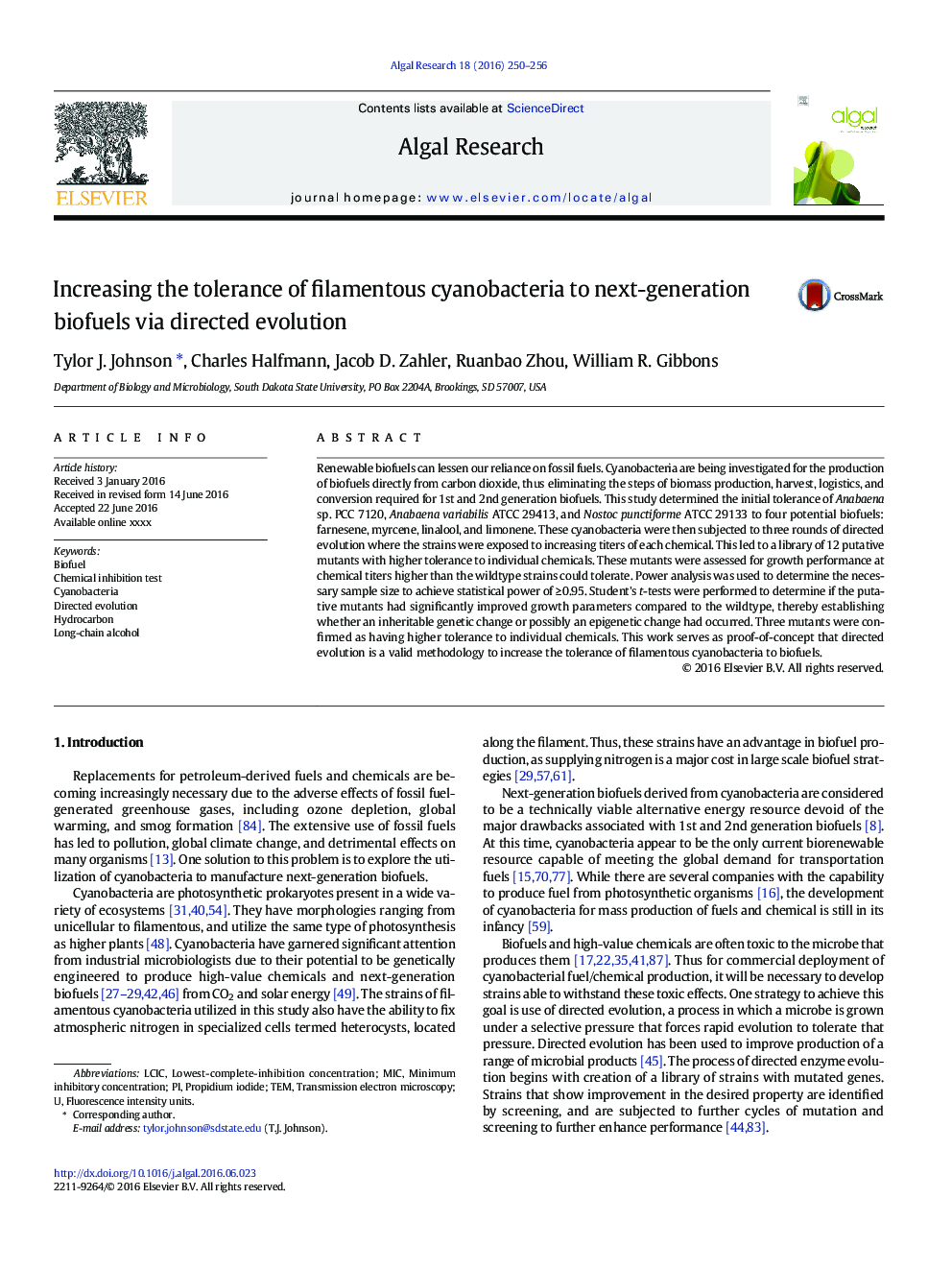| Article ID | Journal | Published Year | Pages | File Type |
|---|---|---|---|---|
| 8086643 | Algal Research | 2016 | 7 Pages |
Abstract
Renewable biofuels can lessen our reliance on fossil fuels. Cyanobacteria are being investigated for the production of biofuels directly from carbon dioxide, thus eliminating the steps of biomass production, harvest, logistics, and conversion required for 1st and 2nd generation biofuels. This study determined the initial tolerance of Anabaena sp. PCC 7120, Anabaena variabilis ATCC 29413, and Nostoc punctiforme ATCC 29133 to four potential biofuels: farnesene, myrcene, linalool, and limonene. These cyanobacteria were then subjected to three rounds of directed evolution where the strains were exposed to increasing titers of each chemical. This led to a library of 12 putative mutants with higher tolerance to individual chemicals. These mutants were assessed for growth performance at chemical titers higher than the wildtype strains could tolerate. Power analysis was used to determine the necessary sample size to achieve statistical power of â¥Â 0.95. Student's t-tests were performed to determine if the putative mutants had significantly improved growth parameters compared to the wildtype, thereby establishing whether an inheritable genetic change or possibly an epigenetic change had occurred. Three mutants were confirmed as having higher tolerance to individual chemicals. This work serves as proof-of-concept that directed evolution is a valid methodology to increase the tolerance of filamentous cyanobacteria to biofuels.
Keywords
Related Topics
Physical Sciences and Engineering
Energy
Renewable Energy, Sustainability and the Environment
Authors
Tylor J. Johnson, Charles Halfmann, Jacob D. Zahler, Ruanbao Zhou, William R. Gibbons,
